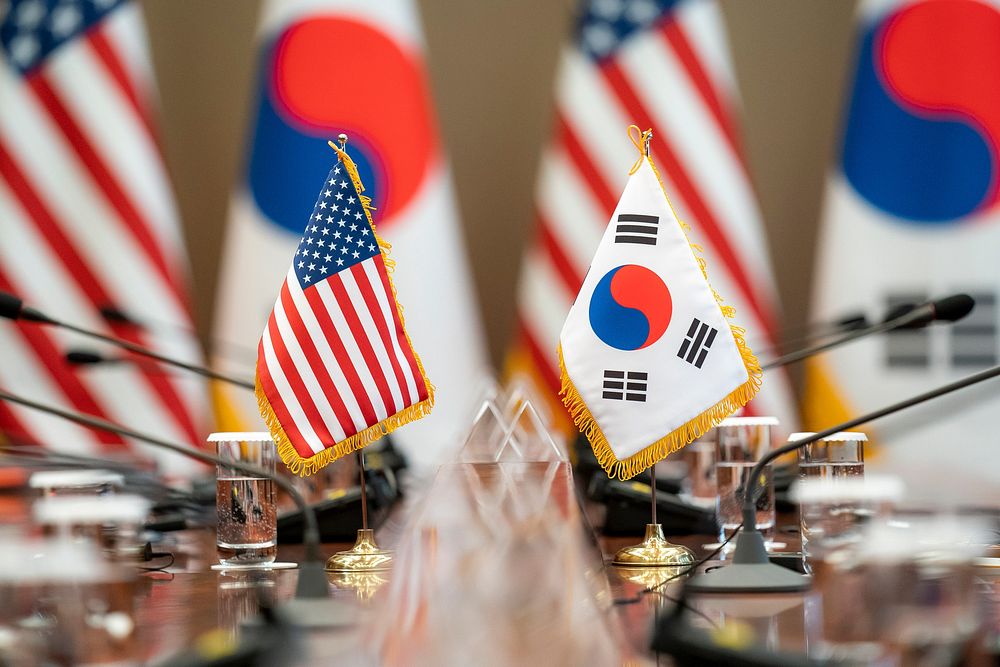South Korean officials state they are unable to pay $350 billion in upfront investment under President Donald Trump’s deal to cut tariffs. As a result, the country is seeking alternative solutions. The deal made by Trump and President Lee Jae-Myung back in late July would reduce U.S. tariffs from 25% to 15% and involve loan investments in U.S. car manufacturing and shipbuilding.
“The position we’re talking about is not a negotiating tactic, but rather, it is objectively and realistically not a level we are able to handle,” South Korea’s National Security Adviser Wi Sung-lac said on Channel A News television.
U.S. Commerce Secretary Howard Lutnick said that there would be no flexibility for Seoul. “The Japanese signed the contract. The Koreans either accept that deal or pay the tariffs. Black and white, pay the tariffs or accept the deal.”
Yet the State of South Korea’s economy is different from Japan’s. South Korea’s economy is smaller than Japan’s, with central bank reserves of 416 billion compared to Japan’s $1.3 trillion. While South Korea has a surplus of $99 billion, Japan has $200 billion. The current deal also raises economic concerns. According to Reuters, market participants are concerned the dollar demand will overwhelm the domestic currency market, depressing the Won. The Won is not a mainstay in the market compared to the Yen. South Korea’s President Lee Jae-Myung also told Reuters that unless there is a currency swap, South Korea would face financial crisis like the 1997 financial crisis.
The trade deal Trump is presenting to South Korea and the complications involved could strain relations with a key partner. Such strains could be counterproductive to countering the axis of autocracy with China, Russia and North Korea. In addition, failing to make a deal would reduce resources the U.S. could use to increase naval production. Securing a deal for U.S. shipbuilding would help close the widening shipbuilding gap between it and China, according to the Center for Strategic and International Studies. In the event congress cannot gain authority to approve of Trump’s trade deals, other alternatives such as currency exchange should be pursued.
Potential trade relations could be further strained by Trump’s immigration policies. Earlier this September, more than 300 South Korean workers on B-1 visas were arrested at a Hyundai factory in Georgia. According to the Independent, the employees were taken to an ICE detention facility where they were allegedly shackled and held for a week under grim conditions. The workers accuse the federal authorities of human rights violations. As a result, South Korea’s Foreign ministry has pledged to investigate the matter. South Korean President Lee Jae-Myung warned some companies fear “establishing a local factory in the United States will either come with severe disadvantages or become very difficult for our companies” unless the United States can issue reliably enforceable visas to foreign technicians.
Whether the deal will be secured between South Korea and the U.S. remains uncertain. Further discussions about alternatives to finalize the deal may be struck next month at the Asia-Pacific Economic Cooperation (APEC) grouping hosted by South Korea next month, which Trump is expected to attend.
South Korea cannot pay $350 billion to US for tariff deal as Trump suggests, top aide says | Reuters
Explainer: Why South Korea cannot make the same US trade deal as Japan | Reuters
South Korea’s trade deal with Trump could sink its currency and trigger a financial crisis | Fortune
[2025-07-02] Wyden to USTR: Congress Must Approve Binding Trade Deals | The United States Senate Committee on Finance
What Trump Doesn’t Understand About Alliances | TIME
Ship Wars: Confronting China’s Dual-Use Shipbuilding Empire
Koreans arrested at Hyundai factory describe moment ICE swept in and how the US is ‘not a safe place to work’ | The Independent
